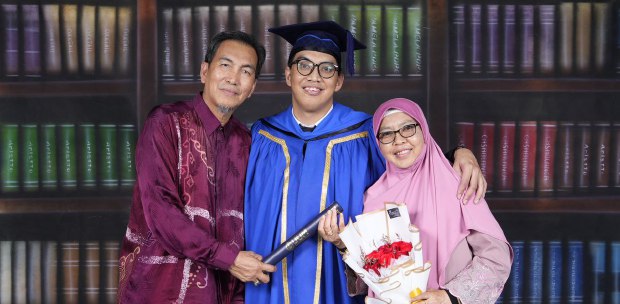One issue that haunts graduates is the challenge of getting a job that matches their qualification.
According to Graduate Tracer Study, the Higher Education Ministry, in 2021, 14.5 per cent or 41,467 graduates were unemployed.
Out of this figure, 14,595 were from public universities, 18,391 from private universities and the rest from other institutions.
A total of 18,868 were bachelor's degree holders, and 16,807 were diploma holders.
Out of eight field of studies surveyed by the ministry, the top three with the highest number of unemployed graduates were social sciences, business and law (14,665), engineering, manufacturing and construction (8,950), and sciences, mathematics and computing (4,113).
Based on a press release on Graduates Statistics 2020 by the Department of Statistics Malaysia, 31.2 per cent of graduates worked in semi-skilled and low-skilled categories.
Of this percentage, 28.9 per cent, or 1.26 million people, were in the semi-skilled category, with 11.9 per cent in the service and sales sector; clerical support (9.6 per cent) and craft and trades (3.4 per cent).
The core of this perennial issue could be the mismatch between skills and qualifications sought by employers.
This is also the reason why Universiti Malaya (UM) recently announced that it was discontinuing 20 programmes after a study found they were no longer relevant to market needs and the environment.
By offering programmes that meet the needs of industries, the university hopes its graduates can get employed in organisations that need their skills.
The same action was also taken by Universiti Utara Malaysia (UUM) when it replaced nine of its "impractical" academic programmes with eight new competitive and "industry-friendly" programmes.
According to the International Labour Organisation, the mismatch between skills and jobs exists when the education and training system do not provide the skills required by the labour market.
It could also happen when jobs that correspond to the skills of individuals are unavailable in the economy.
The most common mismatch are skill gaps and over or under skilling.
Skill gaps ensue due to graduates' lack of workplace skills or experience required by employers or industries.
Nevertheless, it is common for graduates to work in sectors unrelated to their education or in line with their career goals.
Some take up jobs below their qualifications and receive lower pay as long as they get hired.
In this case, they're said to be over-qualified and under-skilled.
This would affect their motivation and it will be reflected in their performance.
For companies, job mismatch means they have to deal with high absenteeism and high staff turnover because employees would look for a new job that matches their skills or qualification level and, at the same time, reward them for the work they do.
No doubt employers want well-prepared graduate.
Thus qualification alone does not guarantee graduates will secure jobs of their choice as businesses will also look into their skills and personal capabilities.
A Quacquarelli Symonds Employer Insights Report, published in September 2020, showed that employers surveyed worldwide — besides professional experience — give priority to soft skills as attributes they looked for in graduates.
The second caliph of Islam, Saidina Umar al-Khattab (r.a) used to say: "Teach your children not what is useful in your era, but what will be useful in their era."
It is untenable to task the education system alone over this issue.
The decision by UM and UUM to discontinue and replace certain academic programmes is commendable as it shows that they are doing their best to assure employability post-graduation.
As such, graduates should develop their soft skills, such as communication, problem-solving, teamwork and flexibility, to improve their employability.
The writer is fellow at the Centre for Economics and Social Studies, Institute of Islamic Understanding Malaysia (Ikim)
The views expressed in this article are the author's own and do not necessarily reflect those of the New Straits Times






